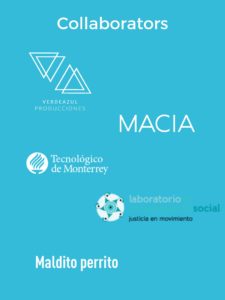Kidnapping has emerged as a major source of societal insecurity in Mexico over recent decades. It is a threat whose pervasive reach is felt across diverse regions of the country and which afflicts and affects the lives of many of Mexican citizens. However, despite affecting thousands of people –directly through the experience of kidnapping and indirectly through diverse mechanisms to mitigate kidnap-risk– this omnipresent insecurity remains shrouded in taboo. Whilst pervasive across Mexico, kidnapping, often remains a crime that many feel uncomfortable talking about. Indeed, accentuated by high-levels of under-reporting, official statistics reflect only a fraction of kidnap incidents. Police complicity; high levels of impunity; failure to uphold the rule of law: all have eroded public confidence in the state’s capacity to combat this illicit practice. In this context, the insecurity born of kidnapping has reached deep into the Mexican public psyche and so-called 'democratization' of this threat ensures that it is no longer just the rich who become victims. Furthermore, this illicit phenomenon has also shown the capacity to reach across borders, its ramifications evident in mobility across the US-Mexico border, whilst kidnapping also takes on new dynamics in violent borderland spaces.
Through the support of the Newton Fund –and based out of the University of Leeds and the University of Exeter in England– our project, M.A.K.E., has worked to provide mechanisms for the construction of sustainable peer-to-peer security measures in the face of kidnapping. First, by engaging with activists, victims and their families we have explored the potential of citizen-led counter-kidnapping and worked together with them to co-produce a toolkit of resources to assist Mexicans to confront this threat. Aware that activist-citizens have already been developing their own strategies to address the threat of kidnapping, our project has worked extensively with local collaborators to not only document and understand the approaches they have adopted, but also to take these further; to explore new ways in which everyday practices and technologies can be adapted into citizen-led counter-kidnapping.
After ethnographic work entailing 60 semi-structured interviews with victims of kidnapping, NGOS, authorities, policemen and perpetrators in Mexico City, Morelos, Veracruz, Tamaulipas and Guerrero our research project started to design a series of mechanisms and interventions to concentrate and analyse the diverse strategies that Mexicans deploy to counter kidnapping and other grave security threats in their everyday lives. A subset of interviews was conducted to understand first-hand the modus operandi of some bands of kidnappers. We interviewed youngsters in rehabilitation centres who had performed kidnappings to get a sense of the ways in which
Once we had systematised these diverse datasets we developed a comic book/handbook to create insights to combat kidnapping, as this is a threat that can be mitigated but not prevented. One of our key innovations is the creation of a digital system in which diverse stakeholders can create groups of trusted peers to face kidnapping emergencies.
The ethos and insights behind what we call the ‘Islands of Trust’ come from the Uros of Lake Titikaka who live in floating islands, who the put together when they marry or make alliances with their neighbours, and separate when marriages break, or they don’t trust and share the same values as their peers. We think that these Amerindian forms of aquatic territoriality better adapt, to the changing and challenging security scenarios in Mexico.
Another key insight born from our fieldwork is linked with the very definition of what constitutes a kidnapping. Nowadays, a kidnapping is only recognised by law when families receive a ransom call, which privileges extortive kidnapping, while this might well fit how kidnapping is understood and experienced around the world, in Mexico kidnapping is related
Another key insight born from our fieldwork is linked with the very definition of what constitutes a kidnapping. Nowadays, a kidnapping is only recognised by law when families receive a ransom call, which privileges extortive kidnapping, while this might well fit how kidnapping is understood and experienced around the world, in Mexico kidnapping is related to a series of other crimes such as sex trafficking, slave labour and organ harvesting which means that many times ransom calls do not exist. So, what should we do with these kidnappings, should be just categorise them differently because the way in which organised criminal extract value doesn’t derive from ransom, or should we expand the definition of kidnapping?
This is not an academic question, if the definition of kidnapping is expanded the already overwhelmed anti-kidnapping special forces and centres will suddenly find hundreds if not thousands more cases on their desks. However, if we don’t expand this notion then we will be privileging those kidnappings which affect those that might be better off, leaving to their own devices large sectors of the population that might not receive a ransom call, or might receive one just to never be in contact with the captors of their loved one again.
Our citizen-led counter kidnapping technologies are designed for family groups, friend groups and other forms of peer groups to create a dynamic security plan, and an emergency response committee. We expect our humble technologies will help citizens to deal with cases of kidnapping or other serious crimes, Once the plan is set up in the app, the users/network members will know how to proceed to tackle the threat they are facing. According to their own prearranged agreements, on which they decide who will act and when.
In M.A.K.E. Work Package Two, we have explored the impact of kidnapping and counter-kidnapping responses in the US-Mexico border region, as well as the complex mobilities that have been triggered by kidnapping in these frontier spaces. With fieldwork missions to the transborder hubs of Ciudad Juarez/El Paso and Tijuana/San Diego, our fieldwork examined the experiences of diverse groups whose everyday lives, and whose relationships with the US-Mexico border, have been conditioned by kidnapping:
• Relatives of those who have been kidnapped and disappeared in Mexico’s Northern borderlands;
• Asylum-seekers who have sought refuge from kidnap-risk, as well as those activists who assist them;
• Wealthy elites who relocated north across the border to insulate their families from kidnap-risk in Mexico;
• Smuggled migrants who are exposed to kidnapping at an almost industrial level;
• Cross-border private security consultants who guard clients from kidnap risk when conducting transborder activities;
• Local business community groups and other civil society actors who demonstrated resilience and solidarity in confronting this threat; and,
• Law enforcement officials (from both sides of the border) tasked with confronting kidnapping.
These are just some of the groups whose participation in our research has provided us with a deeper understanding of kidnap patterns and counter-kidnapping responses in the US-Mexico borderlands. Most importantly, they have enabled us to better comprehend how kidnapping not only directly impacts those who have been abducted and the relatives that await them, but also how kidnapping rips away the intimate bonds of everyday familial, communal, professional and social life in locations where it has become an embedded threat. Through learning from those most affected by kidnapping in these transborder settings, we have worked to gain more profound knowledge of this phenomenon and its pervasive, stigmatizing effects. We have gained new insights into how combatting this pervasive crime entails working to break taboos around kidnapping, as well as catalysing new narratives about this insecurity and new efforts to counter this threat. In seeking to innovate anti-kidnapping action in Mexico, we also looked to innovative counter-kidnapping measures adopted in Colombia during the period that confronted a massive kidnapping problem. By engaging with civil society actors, activist academics and specialist anti-kidnapping units, our fieldwork in Colombia provided novel perspectives on how counter-kidnapping measures were innovated for this context and deployed to not just resolve kidnap situations, but also to ensure more humane treatment of the kidnapped, and greater support for the relatives awaiting their return.
TOOLKIT GALERÍA WORKSHOP –Global Perspectives on Kidnapping & Crimes of (Im)mobility https://kidnappingworkshop.net














